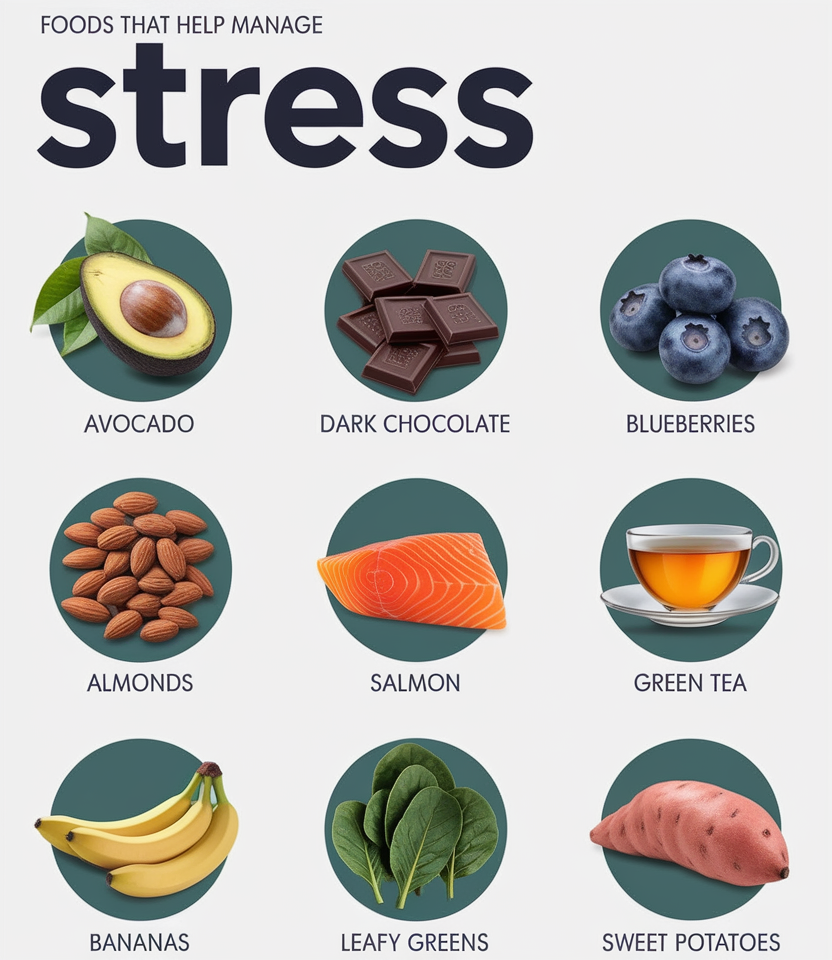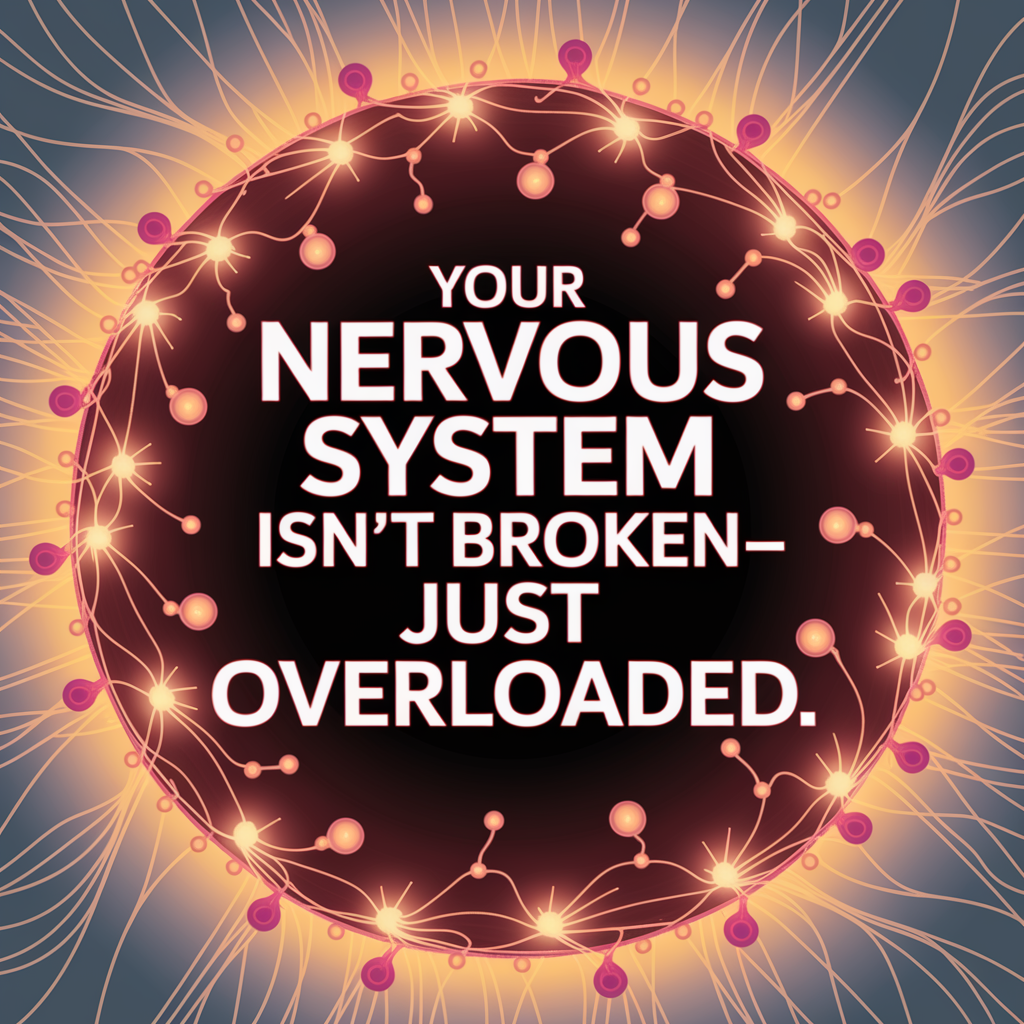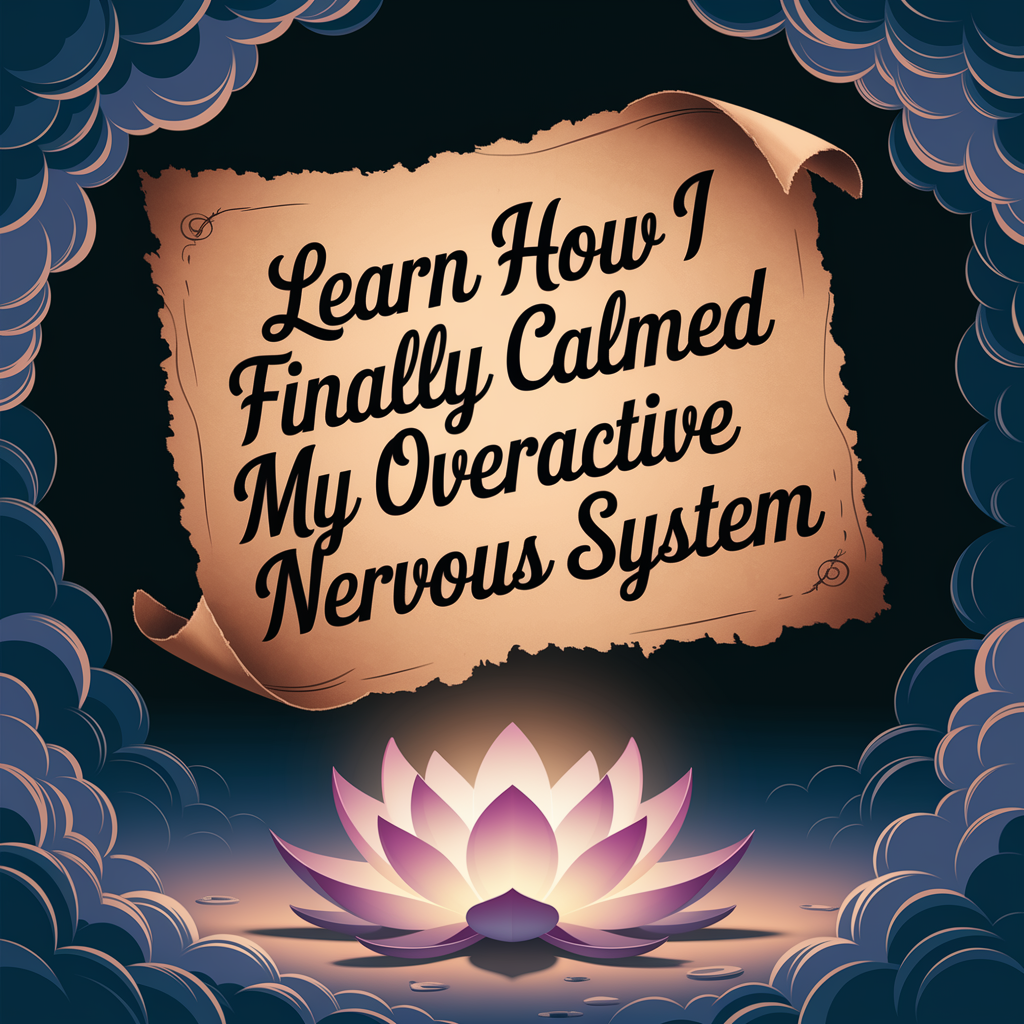
What is an overactive nervous system and how does it feel?
I didn’t always know there was a name for what I was feeling—but I knew something was off. My heart would race for no reason. My chest would tighten. I couldn’t focus, couldn’t sleep, and everything made me irritable. It felt like my body was stuck in overdrive, even when I was just sitting still.
Turns out, I was dealing with an overactive nervous system.
When your nervous system is stuck in fight-or-flight mode, your body behaves like it’s in danger—even when it’s not. You might feel:
- Tense muscles (especially in your neck, shoulders, and jaw)
- Racing thoughts and trouble concentrating
- Panic without warning
- Digestive issues (mine were constant)
- Sleep problems or waking up wired at 3 a.m.
These are all classic overactive nervous system symptoms, and once I realized what was happening, it explained so much—from my anxiety to why my body always felt like it was buzzing with electricity.
This wasn’t just a “mental” thing either. It showed up in my body every day. And I finally had a name for it, which meant I could start learning how to calm an overactive nervous system naturally—without relying on medication or numbing the symptoms.
If you’re dealing with something similar, you’re definitely not alone. I found this post on natural remedies for anxiety and stress incredibly validating—it helped me realize there’s a real mind-body connection at play here.

Why does your nervous system become overstimulated in the first place?
I kept asking myself, Why is this happening? I wasn’t in danger, and nothing particularly traumatic had just occurred—but my body didn’t seem to care. I’d feel jumpy, exhausted, and tense all at once. Learning why the nervous system gets overstimulated was one of the most helpful parts of my healing process.
Some of the biggest triggers I learned about (and definitely felt firsthand) included:
- Chronic stress – When you never fully relax, your system never resets
- Unprocessed trauma – Whether it’s emotional or physical, the body stores it
- Sleep deprivation – Lack of rest keeps your body on high alert
- Too much screen time, noise, or multitasking – Constant stimulation trains your body to stay reactive
- Blood sugar crashes – Skipping meals or eating junk can send your nervous system into a spiral
For me, it was all of the above. I had been operating in survival mode for years. The biggest wake-up call was realizing I didn’t even know what “calm” felt like anymore. My nervous system had no idea how to regulate itself anymore.
One of the best articles I read during this season was on healing from within when you’re dealing with depression. It reminded me that calming the nervous system isn’t just about deep breathing—it’s about rebuilding your entire foundation.

How do I calm my nervous system naturally?
When I finally accepted that I couldn’t live like this anymore—on edge 24/7—I started trying anything that promised to help me calm my nervous system naturally. I didn’t want to rely on pills or numbing myself. I wanted to retrain my body to feel safe again.
Here’s what actually helped me begin to reset:
- Deep, slow breathing – I didn’t think it would do much at first, but when I started practicing 4-7-8 breathing or box breathing, I noticed a shift. My heart would slow, and my brain felt a little quieter.
- Walking outside – Even just 10 minutes of barefoot walking in the grass grounded me—literally. Being in nature softened the mental chaos.
- Journaling when overwhelmed – I’d write down exactly what my body felt. Naming the sensations helped separate me from the reaction.
- Cold exposure – I know it sounds intense, but splashing cold water on my face or standing in a cold shower for 30 seconds helped reset my vagus nerve and lower that buzzing panic.
- Weighted blankets and quiet time – Creating still, quiet space felt uncomfortable at first—but it taught my body how to downshift.
I learned quickly that nervous system calming techniques aren’t about fixing everything in a day. It’s about creating moments where your body can feel safe—then repeating them until your system starts to believe it.
If you’re curious about things like cold exposure, I found this cold plunge guide helpful when I first dipped my toes (literally) into trying it.

Which foods calm the nervous system?
I never used to think food had anything to do with my anxiety or nervous system issues. But once I started paying attention, I noticed certain foods made me feel grounded… and others left me jittery or foggy.
Here’s a list of foods that calm the nervous system that I now keep in my rotation:
- Avocado – Loaded with magnesium and healthy fats, avocados help relax muscles and support brain function. I eat half with sea salt when I feel on edge.
- Dark Chocolate – A little square (like 70%+ cacao) gives me a serotonin boost and helps lower stress hormones—plus it feels like a treat.
- Blueberries – These are antioxidant powerhouses that fight oxidative stress, and they taste amazing frozen.
- Almonds – B vitamins and magnesium support nervous system function, and they’re easy to snack on when I’m too anxious to cook.
- Salmon – Omega-3 fatty acids reduce inflammation and have been shown to help ease anxiety. I try to have it once or twice a week.
- Green Tea – The L-theanine in green tea helps me focus and feel calm at the same time—it’s my go-to afternoon drink.
- Bananas – Great for calming my body when I’m shaky or tired. They help support dopamine production and give steady energy.
- Leafy Greens – Spinach, kale, chard—these are all full of folate and magnesium, which are crucial for calming the brain and nerves.
- Sweet Potatoes – Complex carbs help stabilize blood sugar, which is huge when you’re dealing with anxiety spikes.
When I started eating more of these intentionally—especially during stressful times—I noticed my nervous system felt less reactive. It wasn’t just about calming in the moment, but creating a base of nourishment that made everything feel less chaotic overall.
If you want to go deeper into foods that support your body during stressful seasons, this post on superfoods for optimal health is worth checking out.

What does the vagus nerve have to do with calming the nervous system?
I didn’t even know what the vagus nerve was until I started digging into ways to stop my nervous system from feeling like a live wire. Once I learned about it, everything made more sense.
The vagus nerve is this massive highway running from your brain all the way to your gut. It plays a huge role in the parasympathetic nervous system—the one responsible for calming you down. When the vagus nerve is stimulated in healthy ways, your body gets the signal that it’s safe, and that’s when your heart rate slows, digestion improves, and your mind stops racing.
Here’s what I found actually helps stimulate the vagus nerve and calm everything down:
- Slow breathing – especially exhaling longer than inhaling
- Cold water splashes on the face or neck
- Singing or humming (sounds weird, I know—but it really works)
- Gargling water for 30 seconds
- Laughter – real or even just forcing a chuckle can do the trick
I try to do at least one of these a day now. The difference it makes is real. On days when I forget, I can feel my system revving up. Once you understand the nervous system vagus nerve connection, you start to realize calming down is more than just mindset—it’s body work too.

How do I know if my nervous system is overloaded?
For the longest time, I thought I was just “stressed.” But what I was feeling went beyond that. It was like my nervous system was overloaded, constantly processing too much input and never powering down.
Here are the signs I personally experienced:
- Hypervigilance – feeling jumpy and always on alert, even at home
- Digestive chaos – bloating, nausea, and sudden cramping from even bland foods
- Sleep problems – either not falling asleep or waking up feeling wired
- Emotional numbness or breakdowns – like I was either totally shut off or overly reactive
- Chronic pain flare-ups – my back, neck, and left shoulder would ache worse during stressful weeks
- Depression mixed with anxiety – the worst cocktail, honestly
The thing is, your nervous system can only handle so much before it starts breaking down—and it shows up in physical ways. If you’re constantly tired but wired, your muscles are always tense, or you can’t find calm no matter how hard you try, your body might be screaming that it needs a reset.
This is why I started shifting toward nervous system regulation practices instead of just “stress relief.” I’ve been there. And the truth is, your nervous system doesn’t need tough love. It needs safety, routine, and calm support.
One thing that helped me sleep better through it all was using a lumbar support pillow like this one right here on Amazon. It’s memory foam, helps relieve lower back tension, and I even take it on trips now. It makes a huge difference when your body won’t relax naturally.

What are some simple habits to retrain an overactive nervous system?
I used to think I needed some major life overhaul to feel better. Turns out, my overactive nervous system started to calm down the moment I added in small, steady habits—nothing extreme.
Here’s what actually helped me retrain my system over time:
- Consistent sleep – I stopped staying up late scrolling or stressing. I set a wind-down routine, stuck to the same bedtime, and prioritized sleep like it was medicine—because it kinda is.
- Food that fuels calm – I started eating more foods that help regulate my nervous system (like the ones I shared earlier), especially in the evening to avoid blood sugar dips.
- Daily breathwork – Even just 3–5 minutes of focused breathing in the morning helped me start the day with a lower baseline of stress.
- Gentle movement – I gave up punishing workouts and started walking, stretching, or doing light yoga. Less cortisol, more connection.
- Limiting noise – I reduced how much stimulation I let in: too many tabs open, loud music, chaotic videos, etc. Silence became healing.
- Affirming safety – I started literally telling myself: “You’re safe. You’re okay.” It helped anchor me when my body was freaking out.
The big shift came when I stopped blaming myself for being “too sensitive” and started honoring what my body was trying to protect me from. Calming an overactive nervous system isn’t about toughness—it’s about teaching your system that life doesn’t have to be a threat.
And if you’ve got chronic issues like spondylolisthesis, pain can make the body even more reactive. I linked earlier to my experience with different types of spondylolisthesis, if you’re dealing with that too—it’s all connected.

How to calm an overactive nervous system (even when nothing seems to work)
If you’re anything like me, you’ve probably Googled how to calm an overactive nervous system more times than you can count. And maybe you’ve felt frustrated because everything out there sounds either too clinical or too fluffy to be helpful.
Here’s the truth no one told me: this is a long game, and progress might feel invisible at first—but it’s real. Every time you choose a nervous-system-friendly meal, pause for 60 seconds of breathwork, or go to bed instead of pushing through, you’re teaching your body that it doesn’t have to be in survival mode anymore.
I’m still on that journey myself. Some days, my heart still races for no reason. My back still flares up. My anxiety still whispers worst-case scenarios. But I’ve also had more moments of peace lately—real, quiet, stable peace. And that’s something I wasn’t sure I’d feel again.
If you’ve made it this far, your healing is already in motion. Start with something small tonight. Maybe it’s a mug of green tea, maybe it’s curling up with a lower back support pillow like this one I swear by, or maybe it’s just choosing to believe your body is capable of calming down.
You’re not broken. You’re just wired for protection. And now, you’re learning to rewire for peace—one small step at a time.
As an Amazon Associate we earn from qualifying purchases through some links in our articles.




